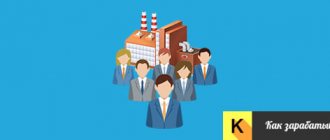Who can become a tutor
Currently, individual training for children and adults, preparation for school and exams, is among the services that are in high demand.
Tutor is a teacher who provides educational services on an individual basis.
Most often, experienced or novice teachers who combine their main job with providing individual services, or those for whom tutoring is the only source of income, become tutors. In all cases, teachers receive money by teaching individually or in groups. This teaching mode is convenient for both teachers and students. There is an opportunity to attend private lessons and gain the necessary knowledge in the chosen subject.
Open an IP for free
Today, many companies providing educational services have opened, but tutors continue to be in high demand. And you don’t even need any special advertising. Word of mouth works great here when parents of students recommend this teacher to others.
How the law regulates the activities of tutors
The Federal Law “On Education” of 2012 regulated the activities of only individual entrepreneurs providing educational services independently or with the involvement of additional teachers. There were no work options for individuals without the formation of an individual entrepreneur until 2020, until changes were made to the Tax Code. Then, in addition to individual entrepreneurs, the status of a citizen appeared, providing services to individuals for personal, household and other needs. A new paragraph 70 was added to Article 217, where income received by individuals from individuals for the provision of such services was excluded from taxation. This list includes those who look after and care for people, do housekeeping, clean rooms and tutors. Tax holidays were introduced for these categories until the end of 2019. Most likely, they will be extended further.
Register your business for free and without visiting the tax office
It's simple: the bank prepares the documents and sends them to the tax office, and in the meantime you do business!
Open an IP for free
A tutor can no longer work officially and not pay taxes
From January 1, 2020, tax holidays for tutors have been cancelled. During the previous three years, a tutor could provide educational services privately and not pay anyone anything. For this it was necessary:
- work without opening an individual entrepreneur
- teach independently, without the involvement of other teachers
- submit a tax notice
To submit a notification, you had to download an electronic form from the Federal Tax Service website, print it out and fill out two copies. With your passport and notification, contact the tax office at your place of residence. They will put a mark there and that’s it, work calmly. You don’t need to submit any reports, and you don’t need to pay taxes either. At the same time, you will carry out your activities strictly within the framework of current legislation. There is no time limit for submitting notifications. This can be done at any time.
Today, everyone providing tutoring services is required to register their activities and pay taxes.
Explanations and clarifications
It is enough to have professional knowledge and skills in any field, and at the same time be able to easily convey this skill to other people - and you can engage in teaching and tutoring. This business does not require many investments; it can be carried out directly by the entrepreneur, or the businessman will organize it, coordinating the relationship of clients with his employees - full-time or freelance.
If an entrepreneur creates an organization providing educational services, he can do this in different forms:
- Preschool education – programs aimed at developing personality, developing various skills, and training preschool children in one way or another. Such a business cannot include the services of a nanny looking after children during the day - such activities are classified as social services.
- Primary education – assistance in children’s mastery of reading, writing, counting, norms of behavior, in the development of thinking and speech, attention, perception and other mental processes. Adults are not trained in this type of business.
- Basic education includes not only the mastery of basic school subjects, but also the development of personal qualities, more professional pursuits of various hobbies, and the initial stages of professional activity in a particular field.
- Higher education is the acquisition of professional skills in a particular specialty.
- Additional education in special fields:
- sports (football, volleyball, gymnastics, swimming, athletics, yoga, martial arts, etc.);
- cultural (art, music, drama, dance).
NOTE! Foreign language teaching and religious education are not included in this type of activity.
Such a business can be carried out individually or in a group, at the client’s home or on the basis of specially equipped premises and centers.
I would like an answer to the following question.
I am engaged in writing student papers, so now the activity is unofficial, but I want to “legalize” it by registering as an individual entrepreneur.
In this regard, the question arose about which OKVED to choose for this activity, but would it fall under the PSN “Activities for training the population in courses and tutoring”?
Why does an individual entrepreneur need a tutor?
Can a tutor work without creating an individual entrepreneur? Yes, if you become self-employed. Currently, the self-employment regime operates on an experimental basis in 23 regions and has already shown its relevance. Tutors who do not open individual entrepreneurs will be able to switch to it.
What can you recommend to tutors today? If tutoring is your permanent and only income, you do not have an official job, open an individual entrepreneur or become self-employed, pay taxes and contributions to the pension fund. In this case, your work experience will continue and your pension savings will increase.
Opening an individual entrepreneur for a tutor
You can open an individual entrepreneur in several ways: on your own, by personally submitting documents to the tax office or sending them electronically on the Federal Tax Service website, through the MFC or with the help of one of the banks offering this service.
When submitting documents in person, you must print out the application form (you can download it on our website in the article “Documents for registering individual entrepreneurs and LLCs” or on the Federal Tax Service website). Then you fill out all the fields, following the rules, make a copy of your passport, pay the state fee of 800 rubles, and go to the tax office. Don't forget to take a receipt confirming payment of the fee.
When sending documents electronically on the Federal Tax Service portal, the application is filled out directly on the website, then, using a special program, it is packaged together with a copy of the passport and sent to tax specialists. There is no need to pay a state fee, but an electronic signature will be required to sign the application. You need to do it yourself using one of the registration centers (list on the tax website).
It’s even easier to create an individual entrepreneur through a bank. Fill out the application, indicating your phone number, answer the questions in the electronic form. The bank will independently prepare a package of documents for registration and send it to the tax office. The bank will also provide an electronic digital signature for you. In this case, no duty is paid. Banking services are also free. This method is currently the simplest and most profitable.
Open an individual entrepreneur through a bank
We pay taxes
An individual entrepreneur has the right to work under the general taxation regime or choose one of the special regimes. One of the simplest for reporting and paying taxes is the simplified tax system (USN). It is also convenient to take out a patent. With a patent, you pay the cost of the patent and insurance premiums. A patent is issued for a period of 1 month to a year, its price is determined by the region based on the average income in a given type of activity. In the simplified version, you will need to pay quarterly tax and fixed contributions to the pension fund and the Compulsory Medical Insurance Fund. But, there is a benefit. You can deduct insurance premiums from tax up to 100% and, accordingly, pay less. It's quite profitable. You work legally, gain seniority, increase your pension savings, and the tax can be 0 rubles. In addition, if you wish, as an individual entrepreneur you will be able to hire employees, obtain a license and open a training center. And this is a different level of business.
Individual entrepreneurs are required to pay fixed insurance premiums from the first day of official registration of their activities
Self-employed people working as tutors have the right not to pay contributions to the pension fund and compulsory health insurance fund
Furniture and equipment
Cosmetic repairs will cost from 30 thousand rubles. It is better to hang pictures and posters on the walls that are related to learning.
Furniture can be chosen according to your taste, but taking into account the fact that it will be used by children. You can buy transformable tables and chairs. The room should contain:
- tables and chairs for classes (from 10,000 rubles);
- coffee table and sofa for parents (from 15,000 rubles);
- table and chair for the administrator (5,000 rubles);
- computer and work phone (40,000 rubles);
- cabinets for outerwear, manuals and toys (5,000 rubles);
- chalkboard (5,000 rubles);
- wall mirror for classes (1,000 rubles);
- mirrors for speech correction (600 rubles);
- video screen (5,000 rubles);
- cooler with hot and cold water;
- literature, manuals and consumables (15,000 rubles);
- other expenses (registration of individual entrepreneurs, rent deposit, advertising) (20,000 rubles).
When does a tutor need a license?
A tutor who provides educational services independently, without the involvement of other specialists, should not receive a license, regardless of whether he opened an individual enterprise or not. But, if you plan to hire teachers, you must obtain a license. To obtain it, you will have to select a premises that meets the requirements of the fire service, obtain permission from the SES, draw up and approve training programs, and conclude employment contracts with all employees.
Of course, it is possible to avoid the above costs if you register your training center as providing consulting services, without mentioning educational ones. Many training centers follow this path, including those preparing for passing the Unified State Exam.
Selecting a room
Choosing premises for a speech therapist’s office is very simple. In such a business, high traffic volume or location in an expensive shopping center is not important. You can open your own speech therapy office in a residential area, in a children's club, in a shopping center, in a clinic, or even at home.
People don’t just come to a speech therapist from the street, but they will also go to a good specialist from other parts of the city. Transport accessibility and good parking, the presence of a stop or entrance to the metro nearby are important.
You may be interested in: What is important to know when opening a women's underwear boutique?
The area of the premises to open a private speech therapy office should be from 30 to 50 sq.m. The price depends on the location - from 20,000 rubles. The room should have:
- room for classes;
- waiting room for parents and children;
- toilet.
Renovation of the premises should be like in a children's room, so that your clients feel comfortable. You can combine several areas, take a larger room and open an office of a neurologist or other specialist next door.
Does a tutor need a cash register?
No. Tutors, including individual entrepreneurs, who work without employees and provide educational services, may not use cash registers when accepting payment for their services. The deferment is valid until July 2021.
Attention! If an individual entrepreneur hires at least one employee, it is necessary to purchase and register a cash register with the Federal Tax Service. This must be done no later than 30 days after signing an employment contract with him.
Register your business for free and without visiting the tax office
It's simple: the bank prepares the documents and sends them to the tax office, and in the meantime you do business!
Open an IP for free
Income and expenses
To open a speech therapy room or office from scratch, you will need approximately 100,000 - 150,000 rubles. This amount includes rent of premises, registration of individual entrepreneurs, purchase of necessary equipment, furniture and materials for classes, advertising. If you open a private office at home, do not need advertising and already have almost all the necessary equipment, the costs will be significantly lower.
You may be interested in: 2 business formats for organizing parties for children
Monthly expenses - payment of rent, taxes, as well as outsourced cleaning staff and accountant - 30,000 - 50,000 rubles.
What is more profitable: individual entrepreneur or self-employment?
Since the beginning of 2020, as an experiment, individuals working for themselves, the so-called self-employed, have been offered to register their activities and pay “Professional Income Tax.” The new regime is already in effect in 23 regions. It can be used by individuals without employees and who have not registered their activities as individual entrepreneurs. It’s very easy to register as self-employed. On the Federal Tax Service website you submit an application online, send a copy of your passport, get access to your personal account and work. No reporting is submitted, contributions to the Pension Fund and the Compulsory Medical Insurance Fund are paid voluntarily, that is, you don’t have to pay. The tax is calculated automatically and ranges from 4% to 6% depending on who they provide services to; in cooperation with legal entities and individual entrepreneurs, the tax is higher. Professional income tax replaces personal income tax, which is paid by individuals.
Tutors who have sent a notification to the tax office about the provision of paid services cannot switch to the self-employed tax. Because currently the income from their activities is not taxed.
.
Open an IP for free
Tax deductions when paying for tutor services
Taxpayers paying for tutoring services have the right to receive a social tax deduction and return 13% of the amount spent on training. But, provided that the tutor has registered an individual entrepreneur indicating that he provides educational services and the corresponding entry is made in the Unified State Register of Individual Entrepreneurs. To receive a deduction, you must provide the Federal Tax Service with a document confirming the actual costs of training, for example, a receipt for payment, and submit a tax return within the established deadlines.
Advertising of tutor services
For an experienced tutor, especially a professional teacher working in an educational institution, finding students is easy and simple. He has potential clients right at his workplace. Even after his dismissal, he will be contacted for recommendations. But what about those who are just starting out? You need to advertise your services. How? The easiest way is to place an ad in the area where you will carry out your activities. It’s convenient for parents when they don’t have to take their child far to classes, but can take them to a neighboring house.
Recommendations from kindergarten teachers or teachers work great. See what children's and educational institutions are near you. Try talking to the staff, hand out your business cards. If you manage to find at least a few students, that’s good.
Conduct interesting and effective activities with them, and word of mouth will begin to work.
Don't forget about social networks. Publish a topic with your advertisement in local public pages. Tell what and who you teach, what success your students can achieve. Use Instagram, it is a very popular network that reaches a wide range of people. Read messages on social networks, maybe someone is looking for a tutor, respond, post your phone number, let them contact you. Offer to give the first lesson for free, and if you like everything, then sign up for the course. This is a good practice and builds trust among potential clients.
OKVED codes - Education
80 EDUCATION This group includes activities related to state, municipal, non-state (private) educational institutions of all types. Educational programs are mastered in the following forms: - in general educational institutions in full-time, part-time (evening), correspondence forms - in the form of family education, self-education, external studies. A combination of different forms of education is allowed. Each level of primary education includes the activities of special (correctional) educational institutions (classes, groups) providing treatment, education and training, social adaptation and integration into society of children and adolescents with physical and mental disabilities. This group does not include: - training aimed at organizing recreation and entertainment, for example, teaching bridge, golf, etc., see 92.6, 92.7 80.1 Pre-school and primary general education 80.10 Pre-school and primary general education
80.10.1 Pre-school education (preceding primary general education) This group includes: - the activities of a network of pre-school educational institutions that implement general educational programs for pre-school education of various types, providing the upbringing and education of children (kindergartens, preparatory classes, etc.) This group does not includes: - daytime child care activities, see 85.32 - activities of orphanages, boarding schools for children, see 85.31 80.10.2 Primary general education This group includes: - primary general school education, which provides for teaching students reading, writing, numeracy, basic skills of educational activities, elements of theoretical thinking, simple skills of self-control of educational activities, culture of behavior and speech, the basics of personal hygiene and a healthy lifestyle in educational institutions for children of preschool and primary school age. This group does not include: - primary vocational education , see 80.22.1 - implementation of literacy programs for adults, see 80.42 80.10.3 Additional education for children This group includes: - additional education for children aged primarily from 6 to 18 years, the main objectives of which are to provide the necessary conditions for personal development development, health promotion, professional self-determination and creative work of children, carried out by: . in out-of-school institutions (children's music schools, art schools, art schools, children's art centers, etc.). in general educational institutions and educational institutions of vocational education 80.2 Basic general, secondary (complete) general, primary and secondary vocational education 80.21 Basic general and secondary (complete) general education This group does not include: - education for adults, see 80.42 80.21.1 Basic general education This group includes: - basic general school education, which is the basis for obtaining secondary (complete) general education, primary and secondary vocational education, associated with compulsory attendance at educational institutions (school, boarding school, lyceum, gymnasium, etc. ) - basic general school education received simultaneously with primary vocational education (secondary music, dance, art schools, art schools, etc.) 80.21.2 Secondary (complete) general education This group includes: - secondary (complete) general education received in general educational institutions (school, boarding school, lyceum, gymnasium, etc.), which is the basis for secondary vocational and higher vocational education - secondary (complete) general education received simultaneously with primary vocational education (secondary music, choreography, art schools, art schools, etc.) 80.22 Primary and secondary vocational education This group does not include: - vocational education at the level of a higher educational institution, see 80.30 80.22.1 Primary vocational education This group includes: - initial vocational education received in vocational schools, lyceums, training centers and other educational institutions of this level 80.22.2 Secondary vocational education 80.22.21 Training in educational institutions of secondary vocational education This group includes: - technical and other vocational education of a lower level than higher vocational education, received, as a rule, in educational institutions of secondary vocational education (technical schools, colleges, technical schools-enterprises, etc.). Secondary vocational education is aimed at training mid-level specialists on the basis of basic general, secondary (complete) general or primary vocational education. As a rule, programs emphasize subject specialization and training in both theoretical foundations and practical skills, usually associated with a current or future occupation 80.22.22 Training in educational institutions of additional professional education (advanced training) for specialists with secondary vocational education This group includes: - additional education (retraining, advanced training, etc.) for specialists with secondary vocational education received at advanced training institutes, courses, vocational guidance centers, vocational educational institutions and other educational institutions in connection with continuous improvement of educational standards 80.22.23 Training in preparatory courses for admission to educational institutions of secondary vocational education 80.3 Higher vocational education 80.30 Higher vocational education 80.30.1 Training in educational institutions of higher vocational education (universities, academies, institutes, etc.) This grouping includes: - education that provides training and retraining of specialists at the appropriate level, satisfying the needs of the individual in deepening and expanding education on the basis of secondary (complete) general, secondary vocational education in educational institutions of higher professional education (higher educational institutions): universities, academies, institutes. In the Russian Federation, the following levels of higher professional education are established, confirmed by the assignment of qualifications to a person: “bachelor”, “certified specialist”, “master” 80.30.2 Postgraduate professional education This group includes: - postgraduate professional education, which provides the opportunity to improve the level of education, scientific , pedagogical qualifications on the basis of higher professional education (graduate school, residency, postgraduate study, etc.) 80.30.3 Training in educational institutions of additional professional education (advanced training) for specialists with higher professional education This group includes: - additional education for specialists who have higher professional education received at institutes of advanced training, higher educational institutions, courses, vocational guidance centers, etc. in connection with the constant improvement of educational standards 80.30.4 Training in preparatory courses for admission to educational institutions of higher vocational education 80.4 Education for adults and other types of education 80.41 Training of vehicle drivers This class includes: - training for obtaining driver's licenses, flight certificates, navigation licenses, etc. - activities of advanced training schools (educational and training centers) for commercial airline pilots 80.41.1 Training of vehicle drivers 80.41.2 Training of flight and maritime personnel 80.42 Adult education and other types of education not included in other groups This class includes: - education for adults who are not studying in the system of regular general education or higher professional education. Training can be carried out in daytime or evening classes in schools or in special institutions for adults. Training programs may include both general education and special subjects, for example, computer education for adults - additional education in order to fully meet the educational needs of citizens, society, and the state, carried out in educational institutions of additional education, as well as through individual pedagogical activities - all types of training via radio, television, computer networks, etc. This class does not include: - higher vocational education, see 80.30 - activities of dance schools, see 92.34.2 - training activities in the field of sports and games, see 92.62
Helpful information?
Share: Free On-line
consultation
{jcomments}











